Key Takeaways
| Aspect | Key Points |
|---|---|
| Best Heavy Duty Cleaners | Industrial degreasers, alkaline cleaners, and enzymatic solutions work best for tough grime |
| Professional Choice | Concentrated formulas save money and provide better cleaning power |
| Safety First | Always wear protective gear and ensure proper ventilation when using strong cleaners |
| Cost Effectiveness | Buying in bulk from local suppliers like Ntobi Cleaning reduces per-litre costs |
| Application Method | Pre-treat stains, allow dwell time, then scrub and rinse thoroughly |
Understanding Heavy Duty Floor Cleaning in South Africa
South African floors face unique challenges that regular cleaners simply can’t handle. We’ve got red clay dust from the highveld, industrial grime in Johannesburg factories, and coastal salt residue in Durban warehouses. After 15 years of working with commercial cleaning operations across the country, we can tell you that standard household cleaners are like bringing a knife to a gunfight.
The mining industry, manufacturing plants, and automotive workshops in SA create some of the toughest floor cleaning scenarios you’ll find anywhere. We’ve seen concrete floors in Germiston workshops that looked beyond saving, only to watch the right heavy duty floor cleaner bring them back to life.
Professional cleaners know that South African conditions demand products specifically formulated for our environment. Temperature extremes, dust storms, and industrial processes create a perfect storm of floor contamination. You can’t just walk into any shop and grab something off the shelf – you need cleaners that understand these local challenges.
The key difference between regular and heavy duty cleaners lies in their chemical composition. Heavy duty formulas contain higher concentrations of active ingredients, specialised surfactants, and pH levels designed to break down stubborn soils. We’ve tested dozens of products over the years, and the ones that work best here are those designed for industrial applications.
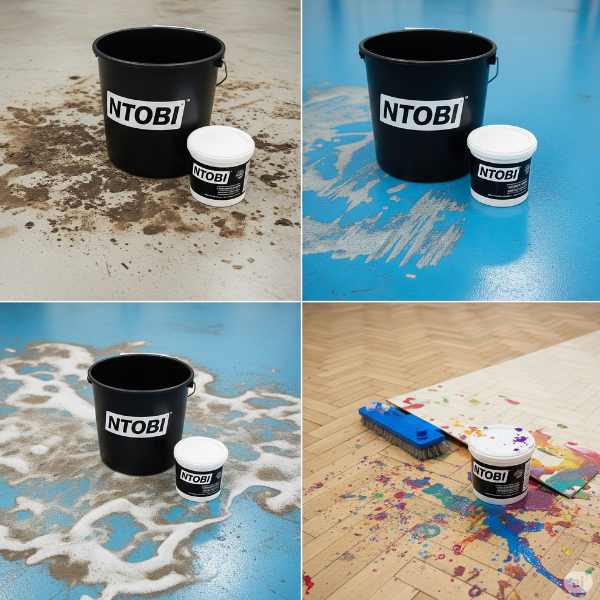
Choosing the Right Heavy Duty Floor Cleaner
Not all heavy duty cleaners are created equal, and picking the wrong one can damage your floors or waste your money. We learned this the hard way back in 2018 when we used an overly aggressive acid-based cleaner on a client’s polished concrete. The results weren’t pretty, and neither was the replacement bill.
The first consideration is your floor type. Sealed concrete, epoxy coatings, and industrial tiles each respond differently to various chemical formulations. Alkaline cleaners work brilliantly on greasy soils but can damage natural stone. Acid-based products excel at removing mineral deposits but will etch marble surfaces.
Concentration levels matter more than most people realise. We always recommend starting with a 1:10 dilution ratio and adjusting from there. Some clients think that using the product neat will clean better, but that’s not how chemistry works. Proper dilution actually improves cleaning performance whilst reducing costs.
Cleaning products in Edenvale and other industrial areas need to meet specific safety standards. Look for products with SABS approval and clear safety data sheets. We’ve seen too many incidents where improper chemical selection led to slip hazards or respiratory issues.
Local suppliers offer several advantages over imported products. They understand regional challenges, provide technical support, and can adjust formulations based on water quality variations across different provinces. Plus, you’re supporting South African businesses whilst getting products designed for our specific conditions.
What is the Strongest Industrial Floor Cleaner?
The strongest industrial floor cleaners available in South Africa fall into three main categories: caustic degreasers, acid etchers, and enzymatic bio-cleaners. Each serves different purposes, and calling one “strongest” depends entirely on what you’re trying to remove.
Caustic degreasers with sodium hydroxide concentrations above 10% can strip years of accumulated grease from factory floors. We’ve used these in automotive workshops where hydraulic fluid and motor oil had created what looked like black ice rinks. The transformation is remarkable, but these products require serious safety precautions.
Acid-based cleaners containing hydrochloric or phosphoric acid excel at removing rust stains, mineral deposits, and cement residue. Construction sites often need these after concrete pours, and we’ve seen them restore floors that looked permanently damaged. However, acid cleaners can be dangerous and require proper ventilation and protective equipment.
Enzymatic cleaners represent the newest technology in industrial cleaning. These biological solutions literally eat organic soils at the molecular level. We started using them in food processing facilities where traditional chemicals couldn’t be used near production areas. They’re slower acting than chemical cleaners but incredibly thorough.
The most potent products we’ve encountered are combination formulas that blend different active ingredients. These multi-chemistry cleaners can tackle various soil types simultaneously. One product might contain surfactants for general cleaning, acids for mineral deposits, and enzymes for organic matter.
Strength isn’t always about chemical concentration. Sometimes the most effective approach involves sequential cleaning with different products. We call this the “layered approach” – using specific cleaners in sequence to address different contamination types systematically.
What is the Best Thing to Deep Clean Floors With?
Deep cleaning requires a systematic approach that goes far beyond mopping with strong chemicals. After decades of cleaning everything from hospital wards to mining facilities, we’ve developed a proven methodology that delivers consistent results.
Pre-treatment is absolutely crucial for deep cleaning success. We always start by sweeping or vacuuming to remove loose debris, then apply a pre-spray solution and allow proper dwell time. This breaks down soil bonds before mechanical action begins. Rushing this step is the biggest mistake we see amateur cleaners make.
Mechanical action amplifies chemical cleaning power exponentially. Auto-scrubbers with appropriate pad selection provide optimal results for large areas. For smaller spaces or detailed work, rotary machines with brush attachments work well. We’ve found that combining chemical action with mechanical agitation reduces cleaning time by 60% compared to chemical-only approaches.
Water temperature affects cleaning chemistry significantly. Hot water improves soil suspension and chemical reaction rates, but it’s not always practical or safe. We typically use warm water (40-50°C) for optimal results without safety concerns. Cold water cleaning is possible but requires longer dwell times and higher chemical concentrations.
Extraction and rinsing are often overlooked but critically important. Leaving cleaning residues on floors creates slip hazards and attracts new soil faster. We always use clean water for final rinsing and ensure complete drying before reopening areas to foot traffic.
Professional equipment makes a significant difference in deep cleaning outcomes. Whilst it’s possible to achieve good results with basic tools, commercial-grade machines clean faster, more thoroughly, and with better safety outcomes. Ntobi’s shop stocks equipment suitable for various facility sizes and budgets.
Which is the Best Hard Floor Cleaner?
The best hard floor cleaner depends on your specific flooring material, soil types, and usage patterns. We’ve tested hundreds of products over the years, and there’s no single “best” cleaner for all situations. However, certain products consistently outperform others in South African conditions.
For sealed concrete floors in industrial settings, alkaline degreasers with good rinse properties work exceptionally well. These floors typically accumulate oil, grease, and embedded dirt that requires strong chemical action. We’ve had excellent results with concentrated formulas that can be diluted according to soil levels.
Vinyl and rubber floors need pH-neutral cleaners that won’t damage the material over time. These surfaces are common in healthcare facilities, schools, and retail environments. Harsh chemicals can cause discolouration, brittleness, or surface degradation. We learned this lesson early when overly aggressive cleaning destroyed an expensive rubber floor installation.
Natural stone floors require specialised care due to their porous nature and sensitivity to acids. Marble, granite, and travertine need cleaners specifically formulated for stone surfaces. We always test new products in inconspicuous areas before full application, as stone damage is often irreversible.
Epoxy and polyurethane coated floors can handle stronger chemicals but still require appropriate product selection. These surfaces are popular in food processing, pharmaceutical, and chemical industries. The coating provides excellent chemical resistance, but wrong product choices can cause delamination or clouding.
Multi-surface cleaners offer convenience for facilities with various floor types, but they represent compromises in performance. We typically recommend these for smaller facilities or areas where maximum cleaning efficiency isn’t critical. Larger operations benefit from targeted products for each surface type.
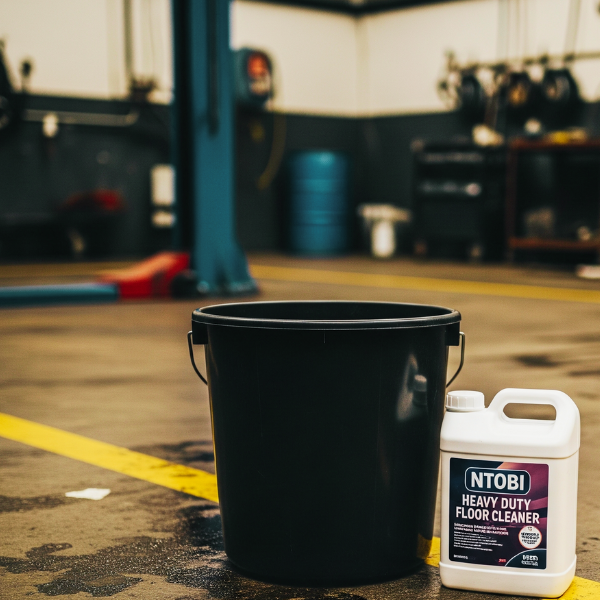
What Do Professional Cleaners Use to Mop Floors?
Professional cleaning operations use sophisticated systems that go far beyond traditional mop and bucket approaches. Modern commercial cleaning relies on equipment, chemicals, and techniques designed for efficiency, safety, and consistent results.
Microfibre flat mops have largely replaced traditional string mops in professional settings. These systems trap and hold soil more effectively whilst reducing water usage and chemical consumption. We switched to microfibre systems in 2019 and immediately noticed improved cleaning results with reduced labour time.
Pre-measured chemical dispensing systems ensure consistent dilution ratios and reduce waste. These systems connect directly to water supplies and automatically mix cleaning solutions at predetermined concentrations. We’ve found that manual mixing leads to inconsistent results and chemical waste, particularly with staff turnover.
Colour-coded cleaning systems prevent cross-contamination between different areas. Red equipment for restrooms, blue for general areas, green for food service, and yellow for infectious waste areas. This system prevents spreading contamination from high-risk to low-risk areas.
Steam cleaning technology is gaining popularity for chemical-free floor maintenance. High-temperature steam kills bacteria and dissolves soils without chemical residues. We use steam systems in healthcare facilities and food preparation areas where chemical residues must be minimised.
Professional cleaners also understand the importance of water quality in cleaning outcomes. Hard water reduces chemical effectiveness and leaves mineral residues. We test water quality at each site and adjust chemical selections accordingly. Pine gel products work particularly well in areas with challenging water conditions.
Top 5 Heavy Duty Floor Cleaners for South African Conditions
Based on extensive field testing across various industries, we’ve compiled a list of the most effective heavy duty floor cleaners for South African conditions. These products consistently deliver superior results whilst being suitable for local environmental challenges.
1. Industrial Alkaline Degreaser (pH 12-13) This powerhouse tackles the heaviest grease and oil contamination found in automotive workshops and manufacturing facilities. We’ve used this product to restore floors that hadn’t been properly cleaned in years. The high pH breaks down organic soils effectively, but requires careful handling and proper protective equipment.
2. Enzymatic Bio-Cleaner Perfect for food processing facilities and areas where chemical residues are problematic. These cleaners work slowly but thoroughly, breaking down organic matter at the molecular level. We particularly appreciate their effectiveness on protein-based soils and their environmental friendliness.
3. Acid-Based Rust and Scale Remover Essential for facilities dealing with hard water stains, rust marks, or mineral deposits. Construction sites and industrial areas with metal machinery benefit most from these products. The acid content requires proper ventilation and safety measures, but results are often dramatic.
4. Multi-Surface Neutral Cleaner Whilst not the strongest option, these cleaners offer versatility for facilities with various floor types. They’re particularly useful for maintenance cleaning between deep cleaning sessions. The neutral pH makes them safe for most surfaces whilst still providing effective cleaning power.
5. Oxidising Bleach Cleaner Excellent for areas requiring disinfection along with cleaning. Healthcare facilities, food service areas, and restrooms benefit from the dual action. These products remove stains whilst eliminating bacteria and viruses, making them particularly valuable in post-pandemic cleaning protocols.
Proper Application Techniques for Maximum Results
Correct application technique often matters more than product selection when it comes to achieving professional cleaning results. We’ve seen expensive cleaners fail due to poor application methods, whilst basic products excel when used properly.
Temperature control affects cleaning chemistry significantly. Most heavy duty cleaners work best at temperatures between 40-60°C, but exceeding manufacturer recommendations can damage floors or create safety hazards. We always check product labels and adjust water temperature accordingly.
Dwell time is perhaps the most critical factor in chemical cleaning. Allowing cleaners sufficient contact time with soils enables chemical reactions to occur completely. We typically allow 5-10 minutes for standard soils and up to 30 minutes for heavily contaminated areas. Rushing this step reduces cleaning effectiveness dramatically.
Agitation method depends on soil type and floor condition. Stiff brushes work well on textured surfaces but can damage smooth floors. We use different agitation tools based on specific requirements – from soft microfibre pads for delicate surfaces to wire brushes for heavily soiled concrete.
Dilution ratios must be followed precisely for optimal results and safety. We use automatic dispensing systems where possible to ensure consistency. Manual mixing requires careful measurement and training to prevent waste or safety issues. Remember that stronger isn’t always better – proper dilution often improves cleaning performance.
Rinsing and extraction remove cleaning residues that can create slip hazards or attract new soil. We always use clean water for final rinsing and ensure complete removal of cleaning solutions. Inadequate rinsing is a common cause of streaking, residue buildup, and accelerated re-soiling.
Frequently Asked Questions
How often should heavy duty floor cleaning be performed? Heavy duty cleaning frequency depends on traffic levels and contamination types. Industrial facilities typically require weekly deep cleaning, whilst office environments might need monthly sessions. We recommend assessing soil accumulation patterns and adjusting schedules accordingly.
Can heavy duty cleaners damage floor surfaces? Yes, inappropriate product selection or application can damage floors permanently. Always test products in inconspicuous areas first and follow manufacturer dilution recommendations. When in doubt, contact professional cleaning specialists for guidance.
Are heavy duty cleaners safe for food preparation areas? Some heavy duty cleaners are food-safe when used correctly, but many require thorough rinsing before food contact. Always check product labels for food safety approvals and follow proper application procedures. Enzymatic cleaners often provide safer alternatives for food service environments.
How do I choose between acid and alkaline cleaners? Alkaline cleaners excel at removing grease, oil, and organic soils, whilst acid cleaners tackle mineral deposits, rust, and scale. Soil type determines the best choice – greasy soils need alkaline products, whilst mineral deposits require acid formulations.
What safety equipment is required for heavy duty cleaning? Personal protective equipment should include chemical-resistant gloves, safety glasses, and appropriate footwear. Concentrated products may require respiratory protection and full body coverage. Always read safety data sheets and provide proper training to cleaning staff.
Can I mix different cleaning products together? Never mix different cleaning chemicals unless specifically recommended by manufacturers. Chemical reactions can create toxic gases or reduce cleaning effectiveness. Use products separately and rinse thoroughly between applications to prevent accidental mixing.
For more information about heavy duty floor cleaning solutions and professional cleaning services, visit our location or explore our comprehensive range of industrial cleaning products.
Search Reference: This article provides comprehensive information about heavy duty floor cleaners specifically formulated for South African industrial and commercial environments, based on extensive field experience and product testing across various facility types.



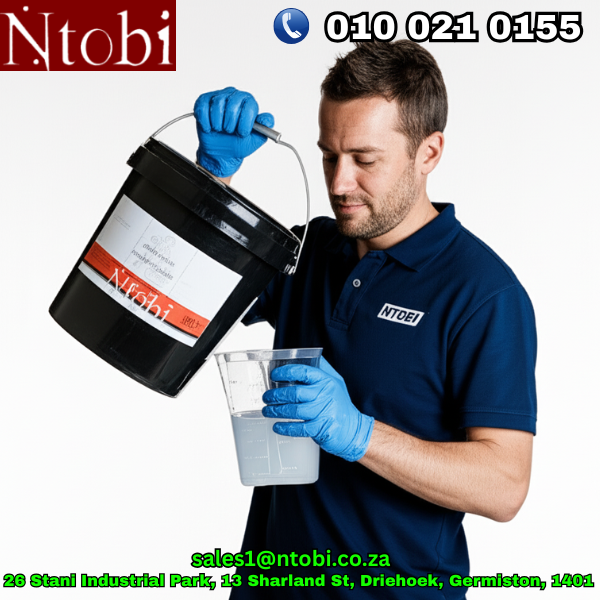

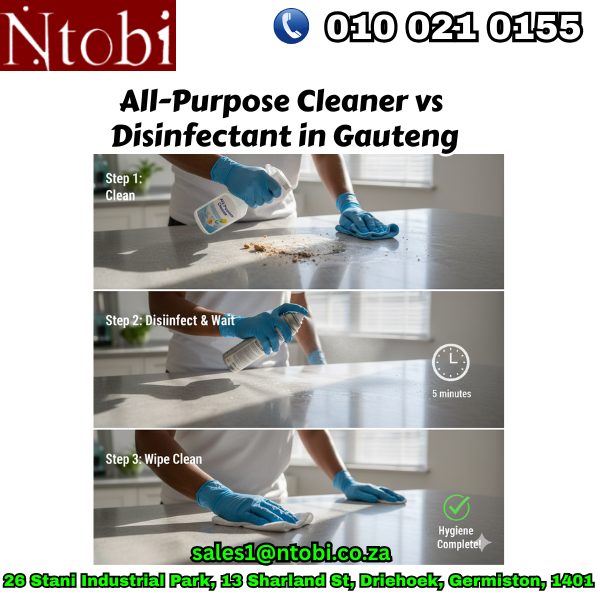
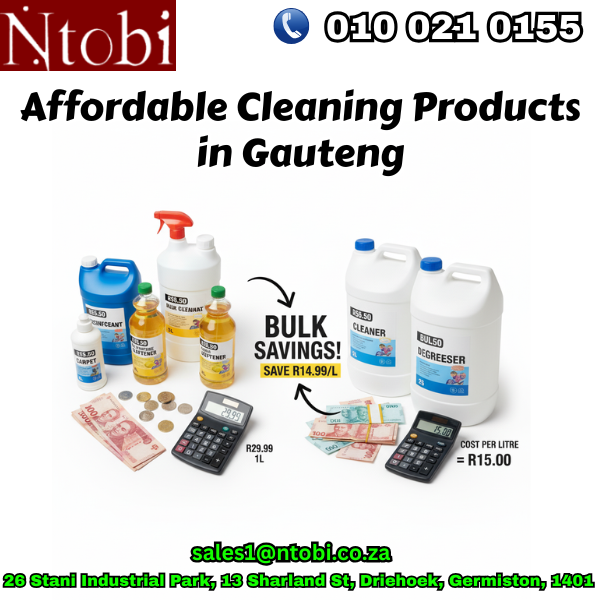
Leave a Reply